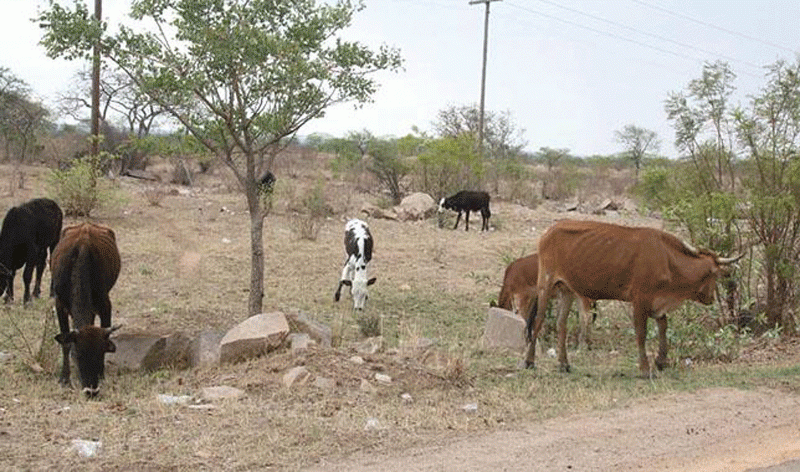
THE Hwange Local Board (HLB) has renewed a crackdown on illegal kraals and livestock enclosures erected in and around residential areas to address the growing problem of stray animals roaming urban neighbourhoods.
The exercise targets makeshift structures built by residents who keep cattle, goats, pigs, and sheep within or on the outskirts of suburbs, often leading to animals straying into streets and posing safety and health hazards.
HLB corporate communications officer, Dumisani Nsingo, said the local authority was determined to enforce by-laws that prohibit livestock rearing in undesignated areas, warning that the demolition exercise will continue until order is restored.
“We have observed that some livestock owners have established kraals in bushy areas on the outskirts of residential suburbs, a practice we strongly discourage,” Nsingo said.
“The animals kept in such places often stray into residential areas, destroying vegetation, causing a nuisance, and posing safety risks to both the public and motorists.
“To curb this, we will continue demolishing these illegal structures.”
In recent years, Hwange urban has been battling a surge in stray livestock, a situation that has seen cattle, goats, sheep and pigs freely roaming through neighbourhoods and roads.
Nsingo said the council has introduced deterrent fines to discourage the uncontrolled movement of livestock, but the measures have yielded limited results due to repeat offenders.
- Travelling & Touring Town: status: Beckoning time for Binga, Hwange
- Hwange eyes town status
- Travelling & Touring Town: status: Beckoning time for Binga, Hwange
- Hwange eyes town status
Keep Reading
“As a development control authority, HLB is mandated to regulate and monitor such activities in line with national legislation and our own set of by-laws,” he said.
To strengthen enforcement, HLB is working on establishing a livestock pound where stray or impounded animals will be kept.
Nsingo said the initiative, however, requires significant funding, and the council is exploring partnerships to help finance the project.
“Construction of a modern livestock pound is capital-intensive, and we are considering courting partners to undertake the project,” he noted.
“Owners of impounded livestock will pay a fee for housing their animals, and if they fail to collect them within a stipulated period, the animals will be auctioned to recover costs.”
He added that pigs have become particularly difficult to control, prompting the council to consider euthanising those found roaming freely.
“Controlling pigs has proven to be a major challenge, and as a result, council may be left with no option but to put them down,” Nsingo said. “We are already working towards that.”









